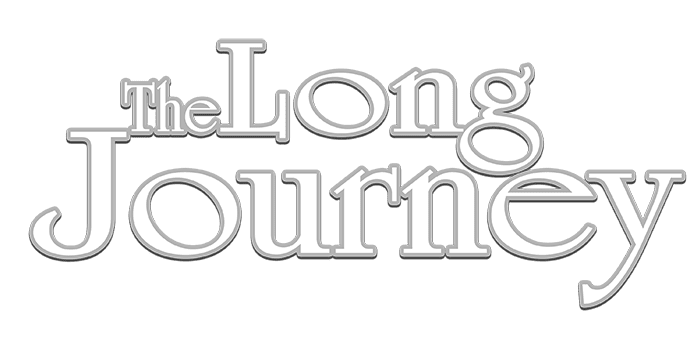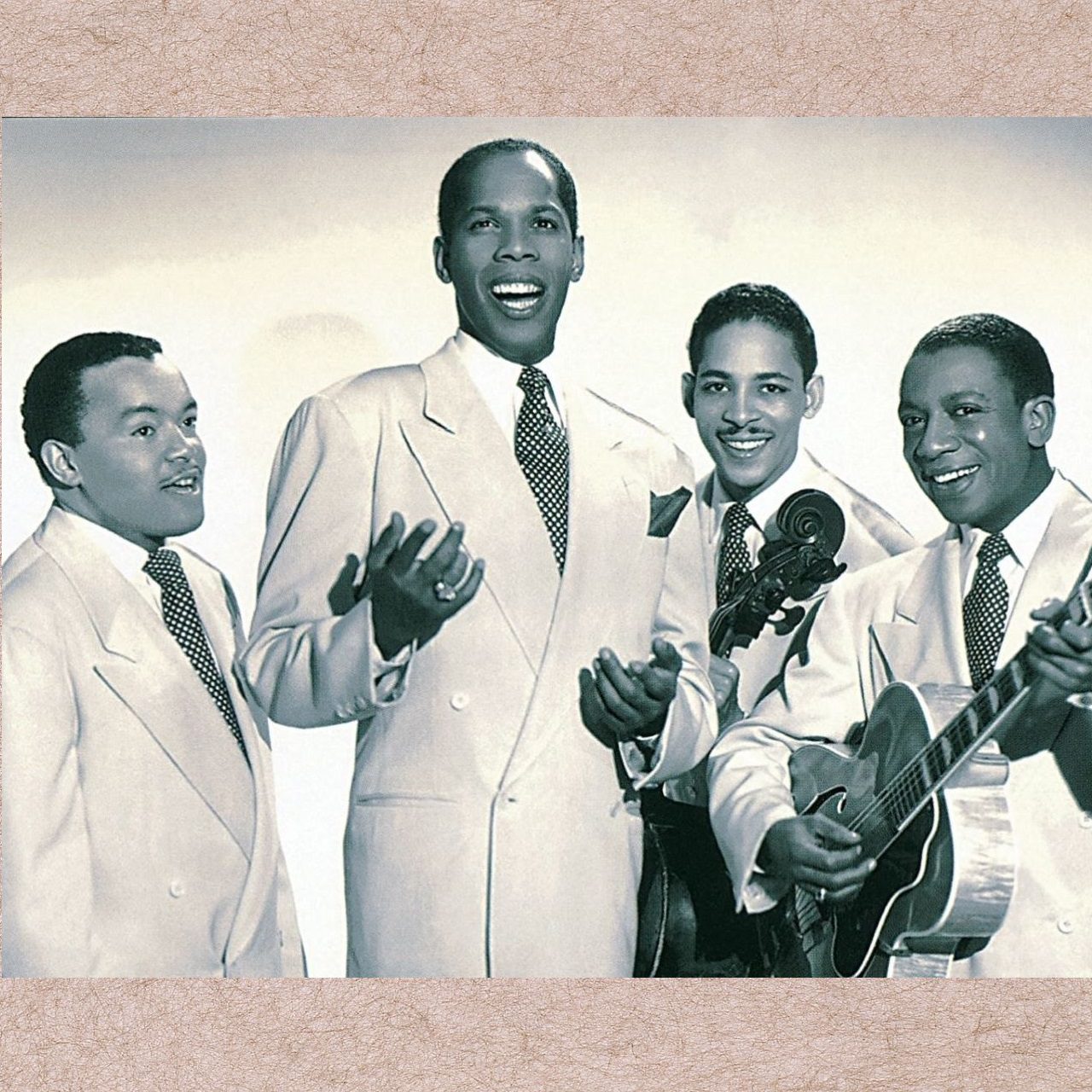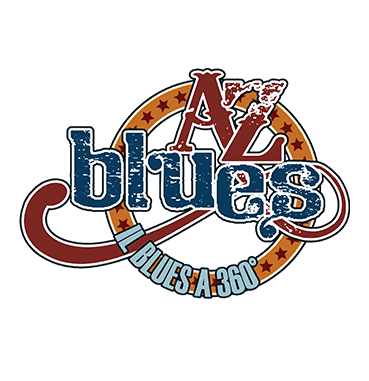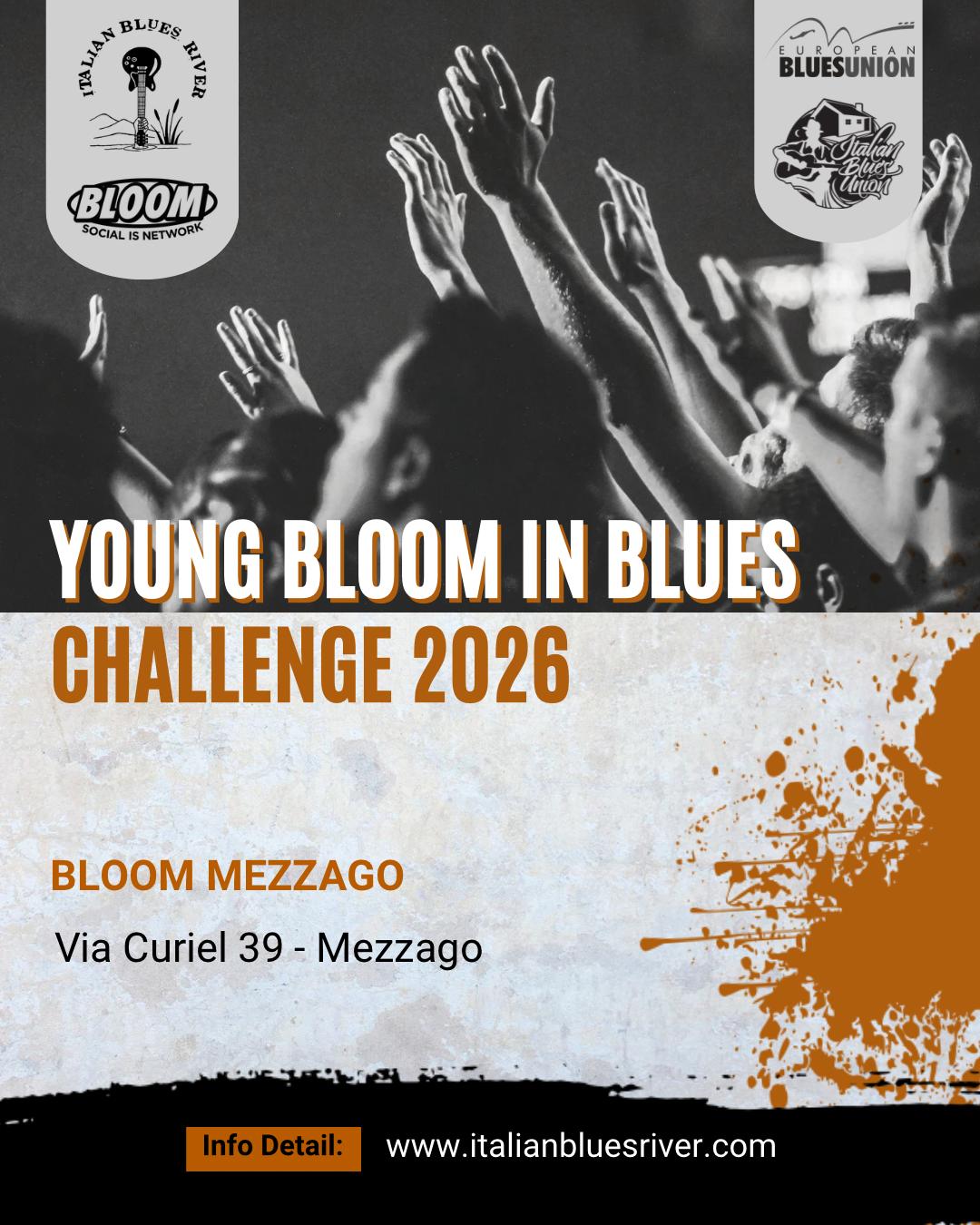Uno dei due gruppi vocali, l’altro è quello dei Mills Brothers, che più hanno influenzato, a livello vocale, lo sviluppo del rhythm’n’blues degli anni ’40 e il rock’n’roll dei ’50. Originari di Indianapolis, Indiana, e con precedenti esperienze in altre formazioni, Ivory `Deek’ Watson, Charlie Fuqua e Jerry Daniels formano nel 1931 il trio King, Jack And Jester. Lavorano in alcune stazioni radio di Cleveland e Cincinnati e diventano un quartetto con Orville `Hoppy’ Jones. Giunti a New York sorge un conflitto sul loro nome, troppo simile a quello dei King’s Jesters, gruppo dell’orchestra di Paul Whiteman, e diventano così gli Ink Spots.
Nel gennaio 1935 effettuano le prime registrazioni, su RCA Victor, e all’inizio del 1936 Daniels abbandona e viene sostituito da Bill Kenny. A maggio firmano con la Decca ma la successiva serie di dieci singoli non produce risultati di sorta.
Nel gennaio 1939 registrano un brano melodico di un certo Jack Lawrence, If I Didn’t Care, che ad aprile è al n.2 Pop e negli anni venderà 19 milioni di copie. E’ il loro più grande successo e una grande svolta nella carriera, ma anche nella musica popolare americana.
Successivi importanti titoli sono Address Unknown (n.1 Pop, 1939), My Prayer (n.3 Pop, 1939) poi grande successo dei Platters, When The Swallows Come To Capistrano (n.4 Pop, 1940), Maybe (n.2 Pop, 1940), We Three (n.1 Pop, 1940), I Don’t Want To Set The World On Fire (n.4 Pop, 1941) e Don’t Get Around Much Anymore (n.2 Pop, 1943).
Nel 1943 Fuqua parte per il servizio militare e gli subentra Bernie Mackey mentre nell’ottobre 1944 Hoppy Jones muore improvvisamente e viene sostituito da Cliff Givens (ex Golden Gate Quartet). Nello stesso periodo Deek Watson lascia per formare il proprio gruppo The Brown Dots e viene sostituito da Bill Bowen, mentre Kenny viene rimpiazzato da Jim Nabbie.
La produzione discografica prosegue prolifica su Decca fino a tutti gli anni ’50 ma la formazione subisce ulteriori frequenti cambiamenti di personale e dal 1952 inizia un proliferare di gruppi tutti con questo marchio.
Fuqua mette in piedi il suo, con Harold Jackson, Jimmy Holmes e Leon Antoine, e fra il 1953 e il 1955 registra diversi singoli su King (in Italia Parlophon), e poi su Verve. Mentre Bill Kenny, per breve tempo, ha il suo con Adriel McDonald, Jimmy Kennedy e Ernie Brown, Deek Watson ha i suoi Ink Spots coi quali registra materiale su Waldorf.
Decine di formazioni continueranno a sfruttarne il nome, in particolare sulle scene, fino agli anni ’90 e 2000. Comunque quando nel 1989 il gruppo viene eletto alla Rock and Roll Hall of Fame la formazione considerata è quella più classica, costituita da Bill Kenny, Charlie Fuqua, Deek Watson e Hoppy Jones.
78 Giri
It’s A Sin To Tell A Lie/Is It A Sin (My Loving You?) – Decca/Fonit BM 1170 (2.1949)
Prisoner Of Love/I Cover The Waterfront – Decca/Fonit BM 1181 (2.1949)
To Each His Own/Everyone Is Sayin’ Hello Again – Decca/Fonit BM 1190 (3.1949)
A Lovely Way To Spend An Evening/I’ll Get By (con E.Fitzgerald) – Decca/Fonit BM 1191 (3.1949)
I’m Beginning To See The Light/That’s The Way It Is – Decca/Fonit BM 1192 (3.1949)
White Christmas/Always – Decca/Fonit BM 1207 (3.1949)
When You Come To The End Of The Day/Can You Look Me In The Eyes? – Decca/Fonit BM 1219 (3.1949)
Cow Cow Boogie/Don’t Believe Everything You Dream (con E.Fitzgerald) – Decca/Fonit BM 1252 (4.1949)
I’m Not The Same Old Me/Don’t Get Around Much Anymore – Decca/Fonit BM 1262 (5.1949)
Nothin’/Someone’s Rocking My Dreamboat – Decca/Fonit BM 1263 (5.1949)
Ask Anyone Who Knows/I’ll Make Up For Everything – Decca/Fonit BM 1285 6.1949)
That’s When I Came In/You Can’t See The Sun When You’re Cryin’ – Decca/Fonit BM 1286 (6.1949)
Home Is Where The Heart Is/Sincerely Yours – Decca/Fonit BM 1319 (10.1949)
Say Something Sweet To Your Sweetheart/You Were Only Fooling – Decca/Fonit BM 1342 (12.1949)
Don’t Tell A Lie About Me Dear/Just As Though You Were Here – Decca/Fonit BM 1349 (1.1950)
No Orchids For My Lady/It’s All Over But The Crying – Decca/Fonit BM 1359 (1.1950)
That’s What The Man Said (con L.Armstrong)/Little Small Town Girl (con E.Fitzgerald) – Fonit 1523 (5.1952)
It Only Happens Once/(Retro Mills Bros.) – Fonit 1545 (7.1952)
I’m Lucky I Have You/I Don’t Stand A Ghost Of A Chance – Fonit 1583 (11.1952)
You May Be The Sweetheart Of Somebody Else/Under The Honeysuckle Vine (con Bill Kenny) – Fonit 1641 (2.1953)
Planting Rice/Yesterdays – Parlophon/Carisch 13015 KG (1.1957)
The Best Things In Life Are Free/I Don’t Stand A Ghost Of A Change With You – Fonit 2178 (4.1957)
45 Giri
Planting Rice/Yesterdays – Parlophon/Carisch KNO 22004 (8.1957)
Smoke Rings/Deep Purple – Parlophon/Carisch KNO 22005 (8.1957)
Darling Don’t Cry/You Name It – Verve/Saar V 10071×45 (9.1958)
Java Jive/To Make A Mistake Is Human (con D.Watson) – Waldorf/Cetra 45 WR 25 (12.1958)
I Don’t Want To Set The World On Fire/We Three My Shadow And Me (Import FR) – Carrere 13163 (1983)
Extended Play
The Ink Spots – Fonit ED 2008 (1956)
The Ink Spots – Fonit ED 2047 (8.1958)
Charlie Fuqua’s Ink Spots In Hi-Fi – Verve/Saar EPV 4017 (8.1958)
Charlie Fuqua’s Ink Spots In Hí-Fi – Verve/Saar EPV 4018 (8.1958)
The Ink Spots – Parlophon/Carisch KLD 25021 (10.1958)
Jass Band-4 Top Hits (A.V, 2 p.) (con D.Watson) – Waldorf/Cctra EP RW.109 (12.1958)
Augusto Morini, Maurizio Maiotti, fonte Jamboree n. 57, 2007








